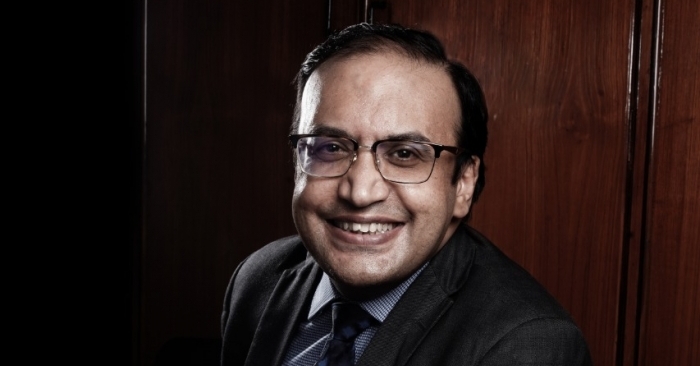10 million sq ft warehousing space in 4 years with ₹2000 cr investment
Abhijit Verma, executive director & CEO, Avigna Space (Industrial & Logistic Park) is talking to ITLN about the locations, clients, strategies and more.

Avigna Space, the warehousing arm of Avigna Group, is planning to develop 10 million sq ft warehousing space in next four years and is looking forward to invest ₹2000 crore to develop the Grade A facilities, particularly in southern India. It is also looking forward to expanding its industrial warehousing facilities in western and northern India by forming collaborations with existing players in the region. Abhijit Verma, executive director & CEO, Avigna Space (Industrial & Logistic Park) is talking to ITLN about the locations, clients, strategies and more.
Why has Avigna Group ventured into the warehousing business and what you intend to do?
Started the warehousing arm in 2018, the group is focusing to develop capabilities in four major areas including understanding land complexities, understanding the development of Grade A facilities, attracting the right kind of clients and the right style of capital. For the last forty years we were acquiring land and today we own a large amount of it specifically in South India. With the warehousing and Industrial real estate business we aim to unlock the potential of these land assets.
There are many Indian and foreign investors looking forward to investing in the Indian warehousing market and we are positioning ourselves as the eligible candidate to invest in.
Tell us about the facilities that you have in your mind and how big they will be?
We are planning to develop 10 million sq ft warehousing space in the next four years and with an investment of '2000 crore to develop Grade A facilities in South India. We will be also expanding to western and northern India by forming collaborations with existing players (landlords) in the region. The priority will for Delhi NCR and Mumbai Pune regions. We will expand to Lucknow, Ludhiana and Kolkata as well.
Our first facility in Hosur, Karnataka with one million sq ft warehousing space will be soon ready to deliver. This will be expanded to a 3 million sq ft facility as per the demand. Then in Hoskote we will be developing 4 million sq feet which is an important industrial space in Karnataka with close proximity to Bengaluru city. The third location is in Chennai Chengalpattu where we will be developing a 1.5 million sq feet near Mahindra World City, an important industrial park. We are also looking forward to a one million sq ft space at Andhra Pradesh’s Nellore, where the location is very close to Krishnapatnam Port. We will also develop last-mile delivery centres in places like Coimbatore as well.
Tell us about your clients/customers and the industries they belong to?
Hosur is a very important industrial town and many industrial, as well as 3PL players, are interested in this facility. We are more looking forward to working with 3PL companies. Because, if you have seen, the entire supply chain management, transport, logistics and warehousing sectors are moving from unorganised to the organised side of it. 3PL companies are the future. 3PL companies are here to stay.
For example, both the locations Hosur and Hoskote are strategically located and have lot of demand and traction from the client-side.
The automotive industry has already recovered from the slump during the Covid lockdowns. The future of automotive is going for electric vehicles. All the large players have already moved in. Definitely, transportation is the future we cannot ignore. We need to be mobile. I’m not seeing any particular challenge coming from this sector.
Covid-19 pandemic has shown us the prominence of e-commerce. It is a sector that will grow and is here to dominate. As a natural progression, along with the larger spaces in the outskirts of urban areas, last-mile delivery and fulfilment centres have to be there. They are taking up a lion’s share of the market and they have to scale up the supply chain management as well. Yes, we are focusing on the last mile delivery centres as well. We want to have our presence close to the cities, but our focus is more into Bengaluru.
Are you interested in building temperature-controlled warehousing facilities for pharmaceuticals and perishables?
Yes, we are building cold storages for agricultural produce but not for pharmaceuticals as of now. As the APMC and mandi culture is already abolished and the recent farm reforms introduced, food-specific warehousing and storage facility will take prominence. In Indian agriculture, one of the major issues is the supply chain and storage system. We are addressing this. We will have chilled, cold and aerated arrangements for the storage of food items.
Earlier mandis and APMCs used to control the supply chain. They controlled both input and output. With the new farm bills, along with the removal of APMCs, farmers are free to sell their products to various open markets. Thus large players in the agri supply chain will come out with bigger cold chain facilities and will help farmers to get better prices for their produce. Indian will have much better forward and backward integration, as the collection of food grains and food products will happen right from the farm.
This interview was originally published in Indian Transport & Logistics News' January- February 2021 issue.

Libin Chacko Kurian
Assistant Editor at STAT Media Group, he has six years of experience in business journalism covering food & beverage, nutraceuticals and now logistics. His current passion is to understand the nuances of global supply chains and their current turmoil. Outside work, he is also interested in philosophy, history, birding and travelling. Mail him: libin@statmediagroup.com Follow on LinkedIn


